Space
Sign up for our newsletter
We summarize the week's scientific breakthroughs every Thursday.
-
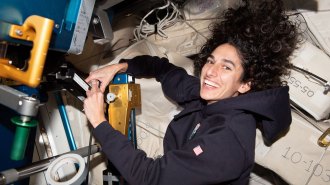 Space
SpaceAstronauts need oxygen. Magnets could help
Adding a magnet could simplify the process of producing oxygen in space, making a crewed mission to Mars more feasible.
-
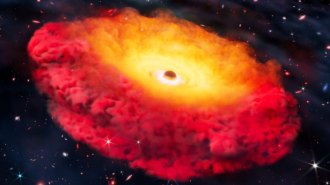 Astronomy
AstronomyThe oldest known black hole formed more than 13.3 billion years ago
The Webb telescope found that a far-off little red dot is the oldest known black hole, shrouded by gas that could help explain the ruby color.
-
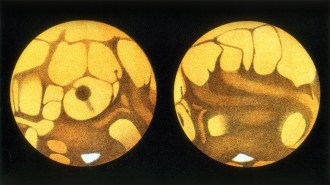 Planetary Science
Planetary ScienceHow alien ‘canals’ sparked debate over life on Mars
In The Martians, journalist David Baron recounts scientific and public debate over purported intelligent life on the Red Planet.
-
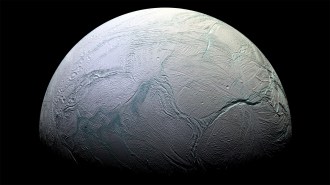 Planetary Science
Planetary ScienceCosmic rays could, in theory, sustain life on other worlds
The hypothesis could extend the search for extraterrestrial life to include frigid planets with thin atmospheres and underground water.
-
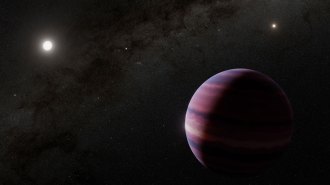 Planetary Science
Planetary ScienceA giant planet may orbit our closest sunlike neighbor
Alpha Centauri A, four light-years from Earth, may host a gas giant. If confirmed, no Earthlike planets orbit in the star’s habitable zone.
- Astronomy
Seven superclouds sit just beyond the solar system
The superclouds probably produce star-forming clouds of gas, since most nearby stellar nurseries are located within the giants.
-
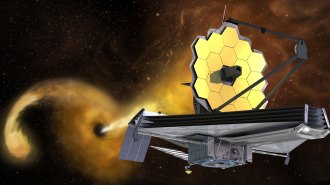 Astronomy
AstronomyThe Webb space telescope spies its first black holes snacking on stars
These star-shredding black holes sit within dusty galaxies that block many telescopes’ views. That’s not an issue for JWST.
-
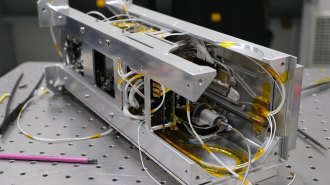 Quantum Physics
Quantum PhysicsA quantum computer goes to space
Quantum computers in space could be useful for communications networks or for testing fundamental physics.
-
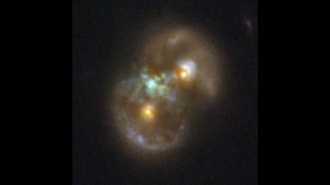 Astronomy
AstronomyTwo colliding galaxies may have birthed this black hole
An infinity symbol–shaped galaxy hosts an active supermassive black hole. The growing giant may have come from the aftermath of a galactic smashup.
-
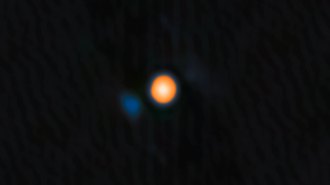 Astronomy
AstronomyBetelgeuse’s companion star revealed in new images
Revealed by advanced imaging, the long-sought "Betelbuddy" is much smaller and fainter than Betelgeuse and orbits within the supergiant’s atmosphere.
-
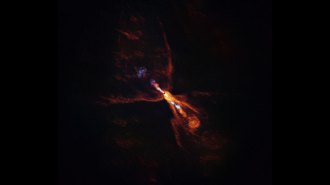 Planetary Science
Planetary ScienceThis star offers the earliest peek at the birth of a planetary system like ours
A young sunlike star called HOPS 315 seems to host a swirling disk of gas giving rise to minerals that kick-start the planet formation process.
-
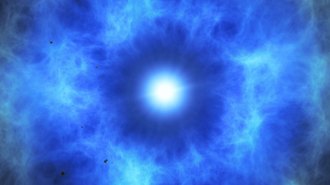 Space
SpaceIn a first, an image shows a dying star exploded twice to become a supernova
The image offers the first evidence for a previously unconfirmed origin story of type 1a supernovas.